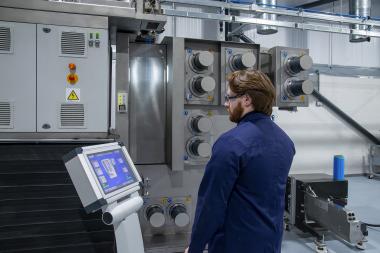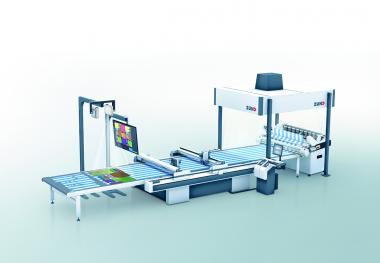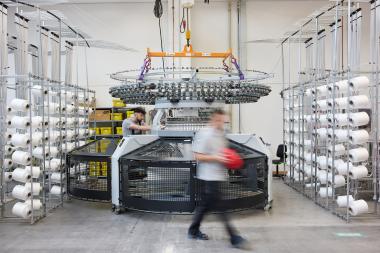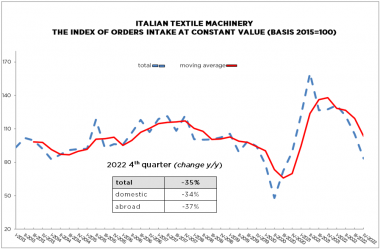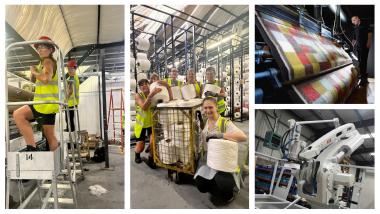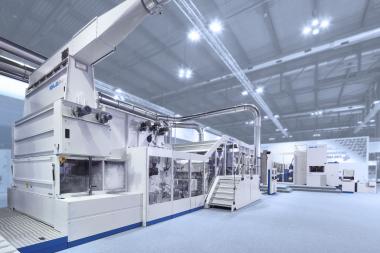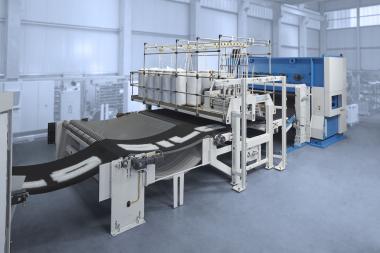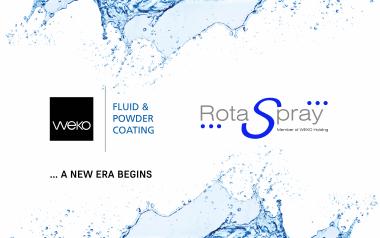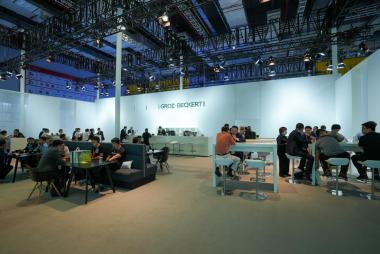Mimaki auf der ITMA 2023
Mimaki Europe wird auf der ITMA 2023 (8.-14. Juni 2023 Fiera Milano RHO, Mailand, Italien) seine auf Nachhaltigkeit und Kreislaufwirtschaft ausgerichteten Lösungen vorstellen. Neben der Präsentation neuer Drucker wird Mimaki auf der Messe auch seine internationalen Kooperationen im Designbereich hervorheben.
Nachhaltigkeit und Kreislaufwirtschaft sind heute für alle Unternehmen von entscheidender Bedeutung. Im Rahmen der Sustainable Development Goals (SDGs) der Vereinten Nationen wird Mimaki auf der ITMA 2023 vollständig wasserlose digitale Lösungen für den Textildruck vorstellen, darunter Direct-to-Film- und Sublimationsdrucker.
Auf der Messe wird Mimaki seine neueste Lösung für das Segment der veredelten Bekleidung, den vor kurzem angekündigten Direct-to-Film (DTF) Inkjet-Drucker TxF150-75 vorstellen. Der Drucker, der ein auf Hitze basiertes Transferverfahren verwendet, eignet sich zur Herstellung hochwertiger, individualisierter Merchandising-Artikel, (Sport)bekleidung und anderer textiler Werbeträger.
Anwender, die ihren Textildruck ausweiten möchten, können am Stand von Mimaki den volumenstarken Sublimationsdrucker TS330-1600 erleben. TS330-1600, der mit einer 10kg-Tintenversorgungseinheit und einem verbesserten Einzugsmechanismus ausgestattet ist, hat eine maximale Druckgeschwindigkeit von 135m2 /h und kann mit fluoreszierenden Tinten drucken, sodass sich Benutzer jetzt noch mehr Anwendungen erschließen können.
Auf der ITMA 2023 werden mehrere neue Modelle, darunter ein neuer Textildrucker, zu sehen sein, die auf dem bestehenden, branchenführenden Portfolio des Unternehmens und den Nachhaltigkeitsanforderungen des Sektors aufbauen. Die Textildrucker von Mimaki zeichnen sich durch eine hohe Druckleistung aus und basieren auf fortschrittlicher Technologie.
Am Stand des Unternehmens werden Kooperationen mit Designern aus aller Welt, darunter aus den USA, Australien und Italien, zu sehen sein, die Mimakis nachhaltige Drucklösungen eingesetzt haben. Als Teil der Zukunftsvision des Unternehmens arbeitet Mimaki mit solchen Künstlern zusammen, um sich neue Perspektiven zu erschließen und nah am Puls der Märkte und ihrer Bedürfnisse zu bleiben.
Mimaki Europe B.V.






